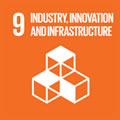Por favor, use este identificador para citar o enlazar a este item:
http://hdl.handle.net/10261/282088COMPARTIR / EXPORTAR:
 SHARE SHARE
 CORE
BASE CORE
BASE
|
|
| Visualizar otros formatos: MARC | Dublin Core | RDF | ORE | MODS | METS | DIDL | DATACITE | |

| Título: | Which policy instruments promote innovation in renewable electricity technologies? A critical review of the literature with a focus on auctions |
Autor: | Río González, Pablo del CSIC ORCID ; Kiefer, Christoph P. CSIC ORCID | Palabras clave: | Renewable energies Auctions Deployment support Innovation Demand-pull |
Fecha de publicación: | jul-2022 | Editor: | Elsevier | Citación: | Energy Research & Social Science 89: 102501 (2022) | Resumen: | Innovation in general, and innovation in renewable electricity technologies (RETs) in particular, are a main element of the clean energy transition. Traditionally, policy measures to spur innovation have fallen into two main categories: supply-push and demand-pull. The latter category includes auctions, which are now the most popular scheme to support renewable energy worldwide. Although renewable energy auctions have been assessed according to several criteria (e.g., effectiveness and efficiency), their impact on innovation has not received much attention in the past. Since auctions will continue to be the instrument of choice in many countries, it is crucial to identify their effects on innovation. This paper aims to identify and discuss the comparative innovation effects of renewable energy instruments, focusing on auctions, with the help of an in-depth literature review of demand-pull (deployment) instruments. The results suggest that auctions do not score well in encouraging innovation, although the evidence for that is limited. In contrast, there is a broad agreement that administratively-set feed-in tariffs have played a much stronger role in this sense, with consistent (and more abundant) evidence that they have promoted innovation. Some reasons which explain this result are provided, taking into account different innovation mechanisms discussed in the literature. The findings of this paper are deemed policy-relevant. If the demand-pull side of innovation processes is missing due to the implementation of an instrument (auctions) which does not generate such demand-pull, then the RET innovation processes which are needed in the clean energy transition may be put at risk. | Descripción: | Este artículo está sujeto a una licencia CC BY 4.0 | Versión del editor: | https://doi.org/10.1016/j.erss.2022.102501 | URI: | http://hdl.handle.net/10261/282088 | DOI: | 10.1016/j.erss.2022.102501 | ISSN: | 2214-6296 |
| Aparece en las colecciones: | (CCHS-IPP) Artículos |
Ficheros en este ítem:
| Fichero | Descripción | Tamaño | Formato | |
|---|---|---|---|---|
| del Rio_ER&SC_2022.pdf | 608,98 kB | Adobe PDF |  Visualizar/Abrir |
CORE Recommender
SCOPUSTM
Citations
22
checked on 13-abr-2024
WEB OF SCIENCETM
Citations
16
checked on 24-feb-2024
Page view(s)
94
checked on 16-abr-2024
Download(s)
41
checked on 16-abr-2024
Google ScholarTM
Check
Altmetric
Altmetric
Este item está licenciado bajo una Licencia Creative Commons



